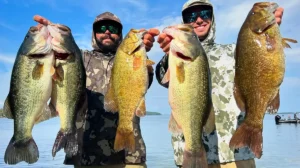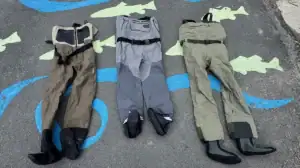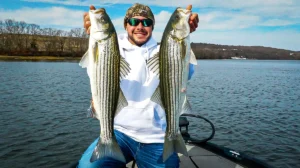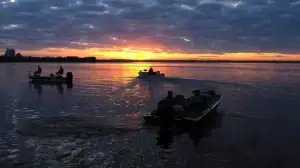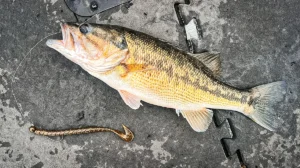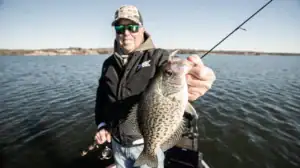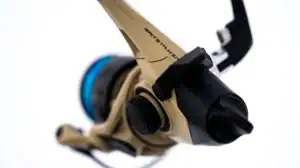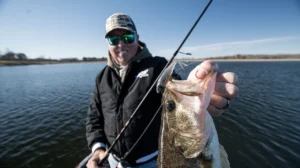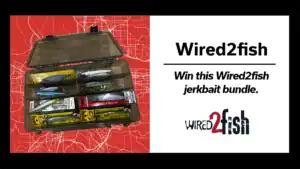During my childhood in Western Massachusetts and my college years in Southwest Vermont, I often spent warm summer days wading in the region’s abundant trout streams. It was easy to gear up for, provided a nice break from bass fishing, and was a great way to cool off.
Now living in Upstate South Carolina, I find that, in addition to the well-regarded bass fisheries, there are excellent opportunities for fishing trout, both wild and stocked. After a long week at work, there’s nothing better than packing a lunch, slipping on some old sneakers, and hitting the streams. Whether you’re targeting rainbow, brown, or brook trout, summer stream fishing sometimes requires a bit of creative thinking, and we’re here to assist you with that.
TROUT BEHAVIOR IN WARM WATER
Early on, I noticed that the location and tactics needed to catch summer trout varied drastically from the colder water periods of spring and fall. Fish were less active and could only be found in specific stretches of water with key types of structure. Trout are a coldwater fish and as the water temps push upward in the summer it scatters the trout into the coolest parts of the streams.
There are a few key variables to maximize warm water trout fishing, ensuring success while being mindful of fish safety. In the summertime, trout are constantly on the lookout for the coolest water possible. Since in most small streams there isn’t an option to go a lot deeper, they use other methods to stay cool. This also tends to make them less active than during the cooler months. So your gear and tactics adjust to their changing states. It’s all about capitalizing on their adjustments in behavior.
IDEAL SUMMER TROUT GEAR
Part of the stream trout fishing appeal is the limited gear requirements. An ultralight pole, a small tackle box with a few key trout lures, and a bit of terminal tackle are essentially all you need to have a successful outing. Depending on the stream, you can run into a variety of trout species. However, rainbows, browns, and brook trout are the most common suspects.
Tip: It is wise to slightly upsize tackle when browns are present.
Trout Rod
Most trout streams in the Eastern United States are heavily wooded areas requiring a short rod ( I prefer mine less than 6 ft) to make accurate casts in tight sections. Often, the adventure requires a bit of bushwhacking, so I opt for inexpensive models, as chipping a guide or snapping a rod tip can be all too common. The key is to select a rod with an ultralight fast action and just enough backbone to steer a larger specimen out of heavy current if needed.
Tip: The Ugly Stik Elite spinning rod is a solid option for tight wooded areas.
Trout Reel
Stream trout are not known for spool-tearing runs, so there is no need for a heavy investment when it comes to the reel. Additionally, most stream sessions expose a reel to a good bit of sand and dirt. Look for a fairly priced option that you feel comfortable taking apart to clean from time to time
Tip: My long-standing favorite reel for this application is a Pflueger President Spinning Reel in the 20 size.
Line
Trout, especially wild high-pressured ones, are line-shy and easily spooked. Fluorocarbon is a requirement as the clear color is completely invisible in even the most pristine water. Depending on water clarity, trout species, type of cover, and angler pressure in the area, I will run anywhere between 2 to 6-pound fluorocarbon.
Tip: A good abrasion-resistant option is Berkley Vanish.
Landing Net
To limit fish handling, I suggest bringing along a small landing net. They reduce hassle at the shore while placing less stress on fish, allowing an angler to quickly remove the hook.
SUMMER TROUT BAIT SELECTION
In my younger years, a day of trout fishing meant flipping over rocks to expose hellgrammites, beefy crawfish, and small bait fish. As I have matured, I have slowly dialed in a series of artificial baits that work well for stream trout in warm weather conditions. The bulk of a stream trout’s diet is composed of insects, and baitfish, especially as they grow larger. Leaning on simple presentations that mimic these food sources is critical to success.
- Jerkbait: Rapala X-Rap Jerkbait (use the big ones for browns)
- Inline Spinner: Mepps Aglia Dressed (see more recommended trout spinners)
- Spoon: Thomas Buoyant
- Tube: Berkley Powerbait Atomic Tube
- Jig: Trout Magnet Original
BEST PLACES TO FIND SUMMER TROUT
As the water warms it becomes a game of location. There are five specific areas that generally hold trout in the warmer months.
- Undercut Banks: Possibly the most classic trout holding structure of all time, undercut banks provide cool shade, a place for fish to ambush stunned bait fish and aquatic insects in the main current, and overhead cover for a safe place to feed.
- Pools: Deep pools become a magnet for trout in the summer months. The deeper water provides relief from shallower sections of the meandering stream.
Tip: Bonus points if this pool is between areas of heavy current and turbulent water. - Upper Stream Reaches: Generally, the upper end of streams will be in steeper terrain with a narrower flow, resulting in increased current and cooler, more oxygenated water. As a stream flows, it generally widens, becoming slow and warm.
- Confluence Zones: When a tributary makes its way into the main stream, it brings with it a smorgasbord of aquatic insects and complicated current patterns that fluster baitfish. Often there is a deep hole where these currents collide creating ample food and cool water.
- Heavily shaded areas: While they can be tough to fish, overgrown stream sections are cast in shade for most of the day.
EFFECTIVE METHODS
I tend to use a three-part system to attack a worthy section of the stream. If it is wide and deep I will start by working a jerkbait, spoon, or spinner to pick off any aggressive fish. In my experience, if the large fish in the area, they will be caught in the first two casts.
Next, I will turn to a bait that I can use to probe the entire water column. Both the Atomic Tube and the Trout Magnet fit the bill. In deeper areas, the tube is a more efficient option as it quickly can reach the bottom where cooler water can be found. It also is a great way to pick up a rogue smallmouth which is always a treat. The Trout Magnet comes into play in areas with heavier currents, where it can be slowly drifted and twitched.
The last part of the system is a nod to my childhood, requiring a section of crawler (or hellgrammite if I am lucky), a small split shot, and an Eagle Claw Model 038 Classic Salmon Egg Hook. Flipping this offering around a piece of structure or drifting it through current seams is a great way to maximize fish catches in the area. Creek chubs or other native baitfish species are common bi-catch when using this method and can be live-lined to trigger larger specimens in the area.
SUMMER TROUT SAFETY
When summer and early fall water temps begin to creep over 65 degrees it is time to put special concern to fish safety. The metabolic makeup of cold-water fish limits their ability to breathe in these conditions and will lead to high rates of exertion during the fighting and landing of a fish. As water temps rise, it limits the amount of oxygen in the stream, causing fish to slow down and become lethargic. This dampens fishability and puts serious stress on fish.
While I never carry a thermometer, I always keep an eye on water levels. If trout are my quarry, I steer clear of low, slow-moving streams past mid-June. Additionally, warm water can foster heavy algae growth. If the bottom of the stream becomes coated in algae, it’s simply too warm to catch trout safely. In fact, algae can further attract heat, leading to a volatile positive feedback loop of additional blooms.
To further emphasize fish safety, limit fishing activity to the cooler parts of the day when fish are more active and less stressed. On rainy days, you can fish longer, as long as your local streams don’t turn to chocolate milk. As all bass anglers know, it is amazing how fast a steady rain can drop water temps.
Tip: When conditions are really hot, spending the day chasing bass or other warm-water gamefish might be a better option.












